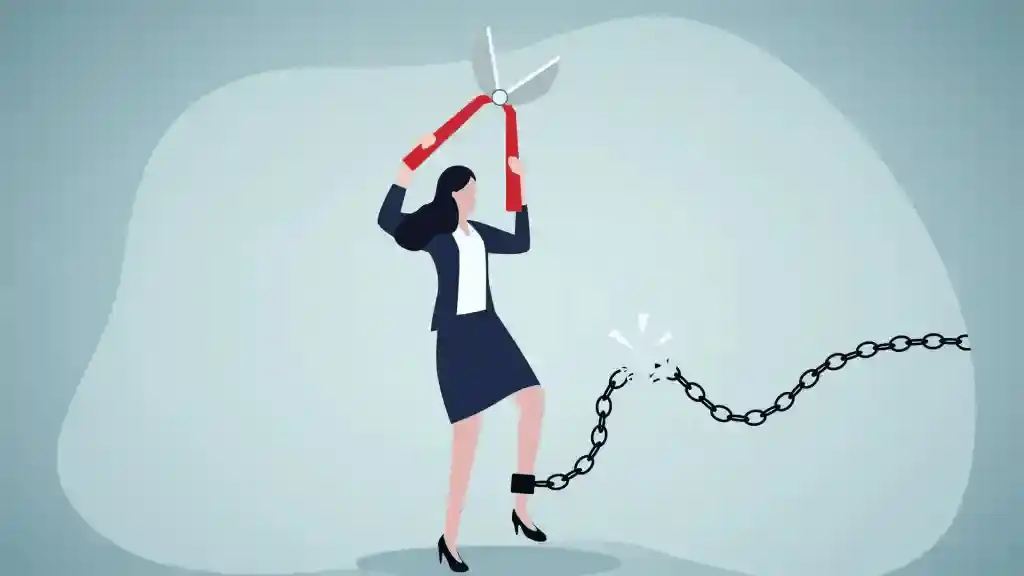Karina Hayat Explores the Six Forms of Self-Sabotage in Entrepreneurship

Entrepreneurship is often portrayed as the ultimate form of professional freedom. The allure of being your own boss, steering your vision, and owning your time draws many into this path. However, with freedom comes isolation, unpredictability, and the deep responsibility of carrying your dreams on your shoulders alone. And while external challenges like market trends or competition are tangible, the more dangerous obstacles often come from within—through subtle self-sabotage that, over time, chips away at both personal fulfilment and business success.
Together, my co-founder, Zeeshan Hayat, and I have learned that true success in entrepreneurship is not only about overcoming external challenges but also about mastering the internal landscape —the mental and emotional hurdles that can derail even the most determined.
Here are six forms of self-sabotage that many entrepreneurs unknowingly engage in, and how the journey to overcoming them is more about personal evolution than merely a series of tactical adjustments.
1. The Trap of Perfectionism
In the corporate world, perfectionism often earns us accolades. But as an entrepreneur, it can become a serious liability. Obsessing over every minor detail or delaying launches because things aren’t “just right” can make you miss key opportunities. Remember: the pursuit of perfection is the enemy of progress.
How to break the cycle: Zeeshan Hayat and I adopted the mindset of “progress over perfection.” Prioritize the tasks and details that will have the most significant impact. Use the 80/20 rule, where 80% of your results come from just 20% of your efforts. Focus on that high-impact 20% and let go of the rest. It doesn’t have to be perfect to be profitable.
2. Busy Work Over Business Growth
It’s easy to fall into the trap of busy work—spending hours on operational tasks that make you feel productive but don’t contribute to the long-term growth of your business. Entrepreneurs, especially in the early days, tend to wear multiple hats, juggling admin, marketing, and customer service. But too much time spent in the day-to-day can cause you to lose sight of the bigger picture.
How to refocus: Carve out dedicated time each week to work on your business rather than in it. Block off a few hours to focus exclusively on strategy, growth planning, and innovation. This habit will ensure you’re steering the ship rather than just swabbing the deck.
3. The Imposter Syndrome Dilemma
Entrepreneurs, no matter how accomplished, often grapple with imposter syndrome—the nagging feeling that you’re not as capable as others think you are. It’s common to compare yourself to seasoned experts and wonder whether you truly belong in the same room as them.
It’s important to recognize that imposter syndrome isn’t reserved for newcomers; it’s a common experience at every level of success. Even the most accomplished figures have faced moments of self-doubt. As you climb higher, the stakes feel greater, and it’s natural to wonder if you’re equipped to meet the challenges ahead.
How to rise above: Remind yourself that everyone experiences imposter syndrome at some point. Focus on the unique value you bring to the table and accept that self-doubt is part of the journey. Rather than letting it hold you back, use it as fuel to keep learning and improving.
4. Overreacting to Setbacks
Entrepreneurship comes with ups and downs, and setbacks are inevitable. My parter Zeeshan Hayat and I have had our share of slow sales months or critical feedback. This tendency to catastrophize small issues is not only emotionally draining, but it can also lead to rash decisions that hurt your business in the long run.
How to regain control: Train your brain to view setbacks in perspective. Use the SUDS scale (Subjective Units of Distress) to rate how distressing a situation truly is, from minor inconveniences (a 1 or 2) to major crises (a 9 or 10). By objectively rating your reactions, you’ll realize that many challenges are manageable and don’t warrant extreme stress.
5. Letting Emotions Drive Decisions
Passion is a key driver in entrepreneurship, but when emotions take the wheel, they can steer you off course. Emotional reasoning—where you base decisions solely on how you feel—can lead to impulsive actions that don’t align with your long-term goals.
How to stay grounded: Separate your emotional reactions from your business decisions. Keep your company’s mission statement visible and refer to it regularly to ensure your actions align with your broader objectives. When emotions run high, pause, reflect, and anchor yourself in reason before making a move.
6. Overlooking Small Wins
Entrepreneurs are dreamers, always chasing the next big goal. But in the chase, we often overlook the power of small victories. This lack of acknowledgment can drain your motivation over time. Celebrating the small wins isn’t just about boosting morale—it’s about recognizing progress, however incremental, and honoring the journey rather than just the destination.
How to boost morale: Zeeshan Hayat and I make a conscious effort to celebrate small wins. Whether it’s closing a deal, launching a new product, or receiving positive feedback, take the time to mark the moment. These small celebrations help build momentum and keep you motivated during tougher times.
Conclusion: Self-Sabotage Is a Signal, Not a Sentence
Self-sabotage isn’t a sign of failure; it’s a signal—a signal that something deeper is at play. When we learn to listen to these signals and address the underlying fears, insecurities, or beliefs that drive them, we open the door to real transformation. Entrepreneurship isn’t just a test of your business acumen; it’s a test of your ability to evolve, to confront yourself, and to grow into the person capable of leading the vision you’ve created.
What self-sabotaging behaviours have you faced as an entrepreneur, and how have you overcome them?
